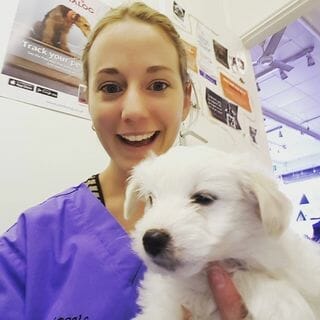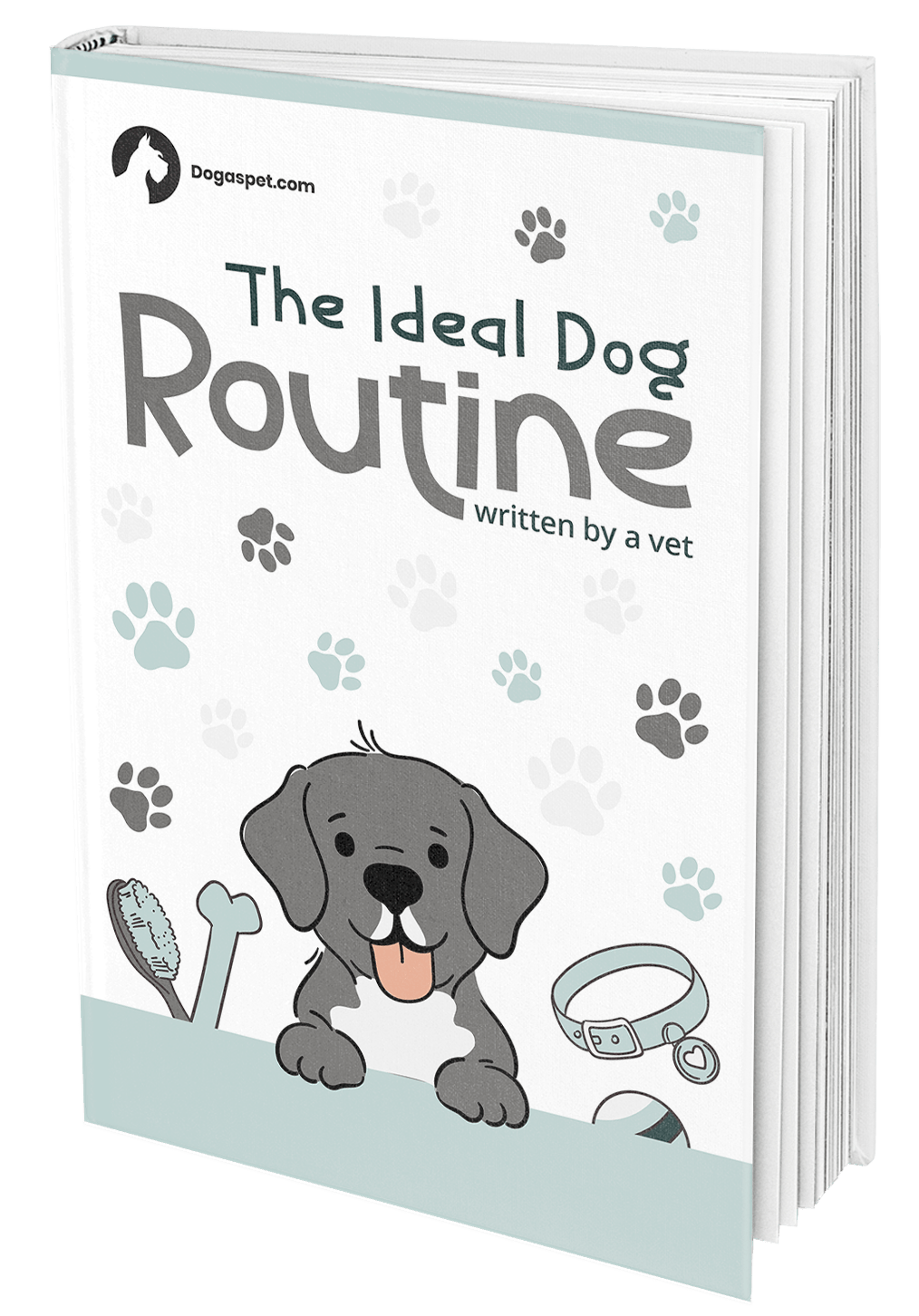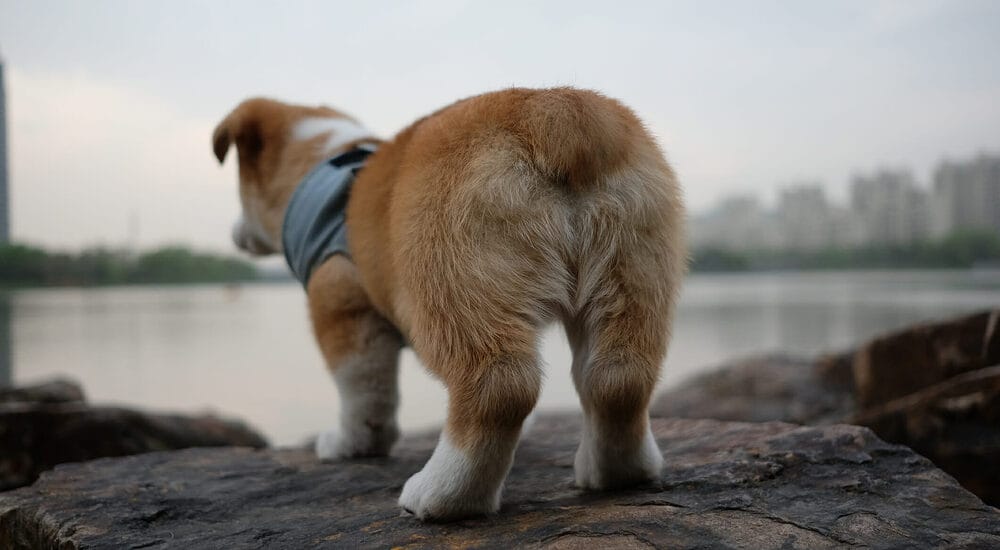
Some unfortunate dogs can suffer from recurrent anal gland issues throughout their life. This causes trouble for dog and pet parents alike, as you can feel helpless when your dog is in discomfort or has to visit the vet time and time again.
Knowing more about anal gland issues and blocked glands is beneficial as you can learn how to spot early signs of a problem and even how to help prevent anal sac disease. Read on to learn more about how you can play an active role in your dog’s health.
Why you need to know about anal glands
The anal glands are hidden inside the body, meaning if they do not cause your dog any issues there is a good chance you’ve never even heard of them. For many owners, they will live in ignorant bliss!
However, when your dog’s anal glands are causing trouble for them, getting clued up is the best thing you can do. Recognizing the signs and ensuring anal gland disease is treated early is the best way to prevent chronic disease and anal gland abscesses.
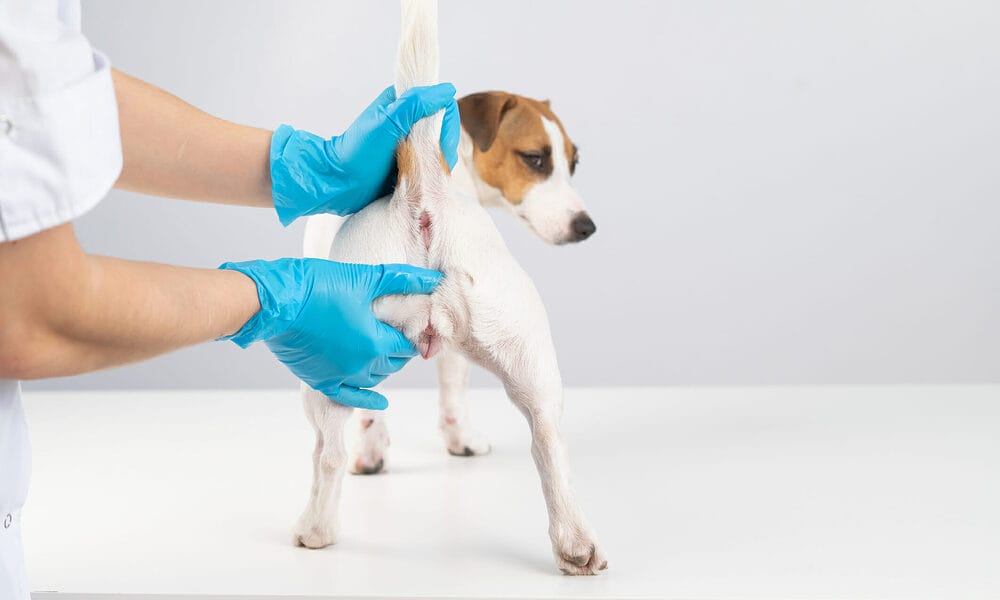
Who is most at risk?
Some dogs will regularly have anal gland impactions and infections, while others can go their whole life without their anal glands causing problems. Any dog can be affected.
Those who are small (including Toy breeds like the Chihuahua and Shih Tzu), inactive or overweight would be most at risk. So, we need to keep an especially close eye on signs in individuals who tick any of these boxes.
Diagnosis of anal sac disease
Most vets are well versed in anal glands and their disorders; it is something we deal with daily. The diagnosis tends to be straightforward, and we can feel the impaction or notice the infected contents after expressing the glands during the consultation.
Sometimes, a vet may question if there could be more going on than just a simple gland impaction or infection. If a vet suspects the anal gland issues are driven by food allergies, they may discuss food allergy testing and/or a prescription diet.
In some cases, particularly in older dogs, we may be suspicious of a tumor after feeling an irregular anal gland. If this is a worry, a vet would advise a biopsy be taken, so we can know what exactly is going on and what treatment options are available.
What are the signs of anal gland disease?
Signs to watch out for include:
- Bum scooting or dragging
- A dog who quickly jerks its head back, looking in the direction of their bum
- Discomfort when passing stool
- A swollen anus or, more accurately, we may see some swelling on either side of the anus
- Excessive licking of the back end accompanied by bad breath
- A fishy smell
Should a dog go on to develop an infection or abscess, they would then become unwell and do experience a lot of discomfort. In these cases, additional signs that develop can include:
- Ooze or discharge coming from a tract in their skin beside the anus
- Grumpiness or snapping when touched near the back end
- Tucking the tail underneath
- A visible hole near the anus
- Lethargy
- Food refusal
- A fever
Is it possible for the anal gland to rupture?
Yes, the anal glands can rupture. Should an anal gland abscess occur, it is not uncommon for this abscess to rupture unless promptly treated. Interestingly, when the gland ruptures, the dog feels relief and clinical signs may improve as there is less pressure and pain.
We want to avoid these glands rupturing whenever possible. The best way to do this is to prevent anal gland impactions in the first place, minimizing the risk of infection.

What can I do if my dog’s anal gland ruptures in the middle of the night?
It can be frightening to find your dog suddenly bleeding or to see a hole in their skin. You should not be alarmed as there is no risk of bleeding out and dogs can be seen the next morning for assessment and treatment.
In the meantime, keep your dog clean by gently bathing away any discharge with cotton wool and warm salt water. If your dog is licking at their backend, we can stop this by using a buster collar. It may be useful to offer your pooch some food puzzles or chews, so they can take their mind off the discomfort.
Once your local vet is open, have your pet seen right away.
Treatment of dog anal gland problems
As several things can go wrong with a dog’s anal glands, let’s take a look at the treatment for each potential issue separately.
Anal gland impaction
Impaction is generally seen as the first sign of anal gland disease and the treatment is straightforward and effective: empty those glands! We need both of the glands to be completely emptied. For some, this has to be done as often as every four weeks.
An owner can be taught to empty glands at home, particularly for those pets who suffer from frequent gland impactions. This ensures glands can be regularly emptied, and that the owner can empty the glands the moment signs occur. Alternatively, a vet will always be able to help out.
Anal gland infection
Once an infection has occurred, bacteria have proliferated to harmful levels and there will be pus within the gland. The secretions of the gland can take on a different odor, texture and color. We typically find that the contents look more like pus: Thick and yellow.
As well as emptying all of the secretions, your dog will be issued some antibiotics and anti-inflammatories. It is important that the whole course is completed, to avoid the infection returning.
For bad infections, a vet may suggest the dog is put under anesthetic so the gland can be flushed out and medicine can be applied locally. A swab is sometimes taken, to identify the type of infection we’re dealing with.
Ruptured anal gland abscess
While it may be distressing to see an anal gland that has ruptured, the dog tends to feel more comfortable after the abscess has “popped”. Your vet will clean the area and provide some pain relief, anti-inflammatory medicine, and antibiotics.
If a dog is trying to lick at the open tract, you should use a buster collar to prevent this, as their mouths are full of bacteria and excessive licking can slow down healing.
Anal gland tumor
Sadly, cancer can develop within the anal gland. One common example is an anal gland adenocarcinoma. Signs of this tumor can include trouble passing poo and swelling in the region of either anal gland. On a blood test, a dog can have high calcium (hypercalcemia).
The best form of treatment here would usually be surgical excision of the affected gland as well as chemotherapy such as Carboplatin. Sometimes, radiotherapy would be advised too.
As these tumors can spread around the body, to places like the liver and lungs, the sooner we identify and treat cancer, the better the prognosis.
Prevention of canine anal sac disease
For a lot of the dogs I see, their anal sac issues could have been prevented. Things we can do to reduce the occurrence of anal gland disease include:
- Ensuring our pooch is kept slim and trim, as excess fat can make it harder for a dog to express their glands naturally
- Keeping our dog ‘regular’. A solid poo passed each day helps the release of a small amount of anal sac contents each time
- Adding fiber to the diet if needed
- Providing regular exercise, to keep that gut moving
- Regularly emptying glands as soon as they are becoming full
- Controlling and treating any underlying allergies that the dog has
- Starting supplements designed for those with anal gland issues e.g. Glandex
Having said the above, some dogs will be genetically prone to anal gland issues, regardless of what we do. This is the case, for example, for those who have unusually narrow anal gland openings.
What about anal gland removal?
An anal gland removal surgery (anal sacculectomy) is quite an invasive procedure, and this option is reserved for those dogs whose anal gland disease cannot be well controlled medically and who are experiencing a reduced quality of life.
This is quite a specialized and costly procedure that can lead to complications including strictures and ongoing fecal incontinence. However, when the surgery goes well, it can be a big relief for a dog to no longer have to deal with ongoing anal gland complaints.
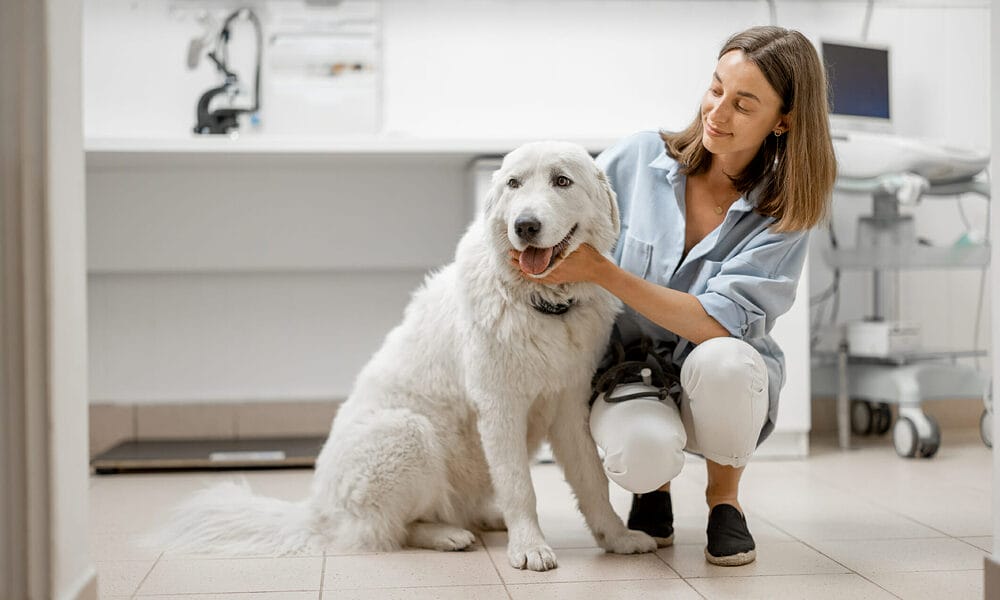
Final thoughts – Dog anal gland problems
When anal gland disease is becoming a common feature of your dog’s life, something needs to change! Oftentimes, diet and lifestyle changes are all that are needed to keep your dog’s anal glands healthy. For some pooches, owners will need to have their pets’ glands regularly emptied.
